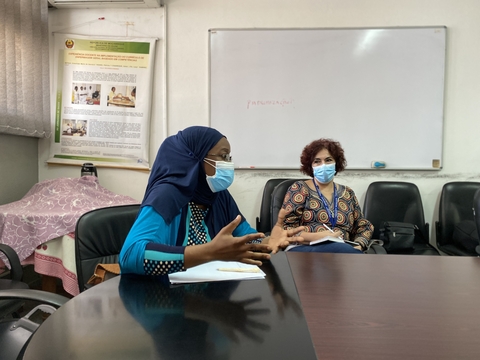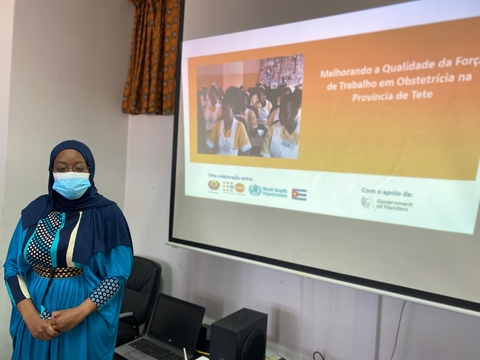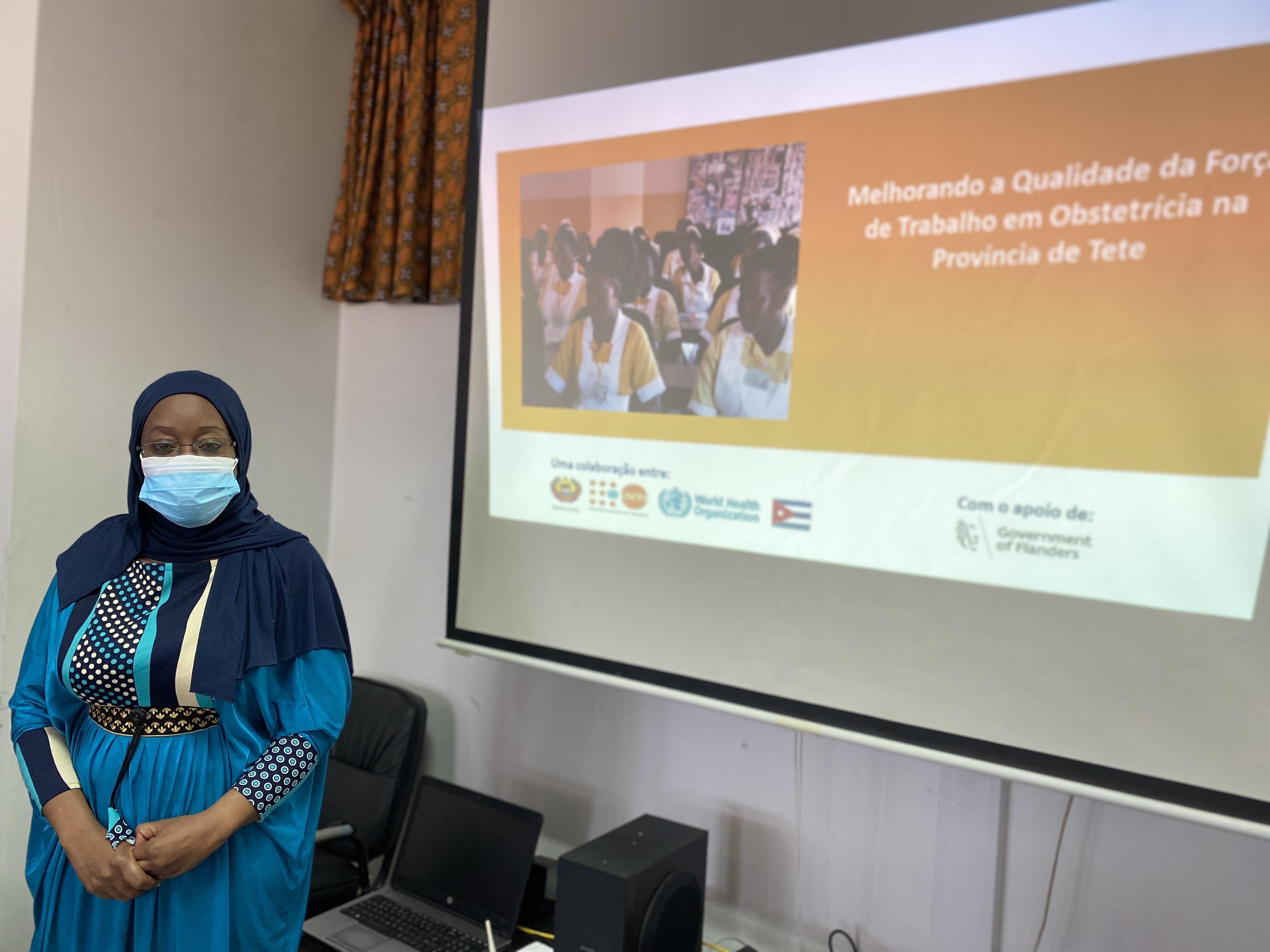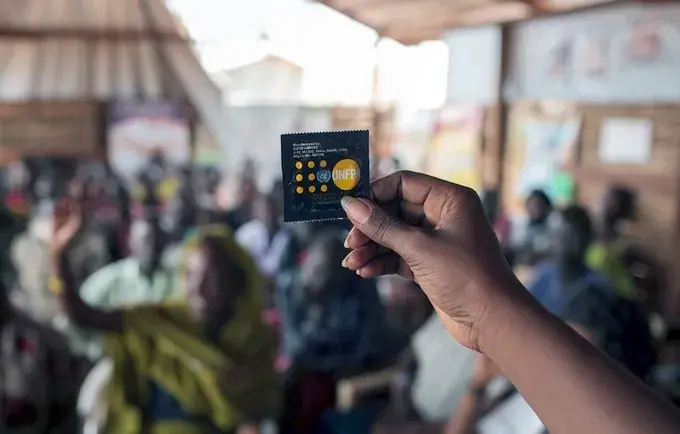“It is important that health professionals from rural communities have access to quality professional and technical education. This helps ensure that the population from these communities benefit from adequate and effective assistance in health centers”
Shares Maria Ines, maternal and child health midwife from Tete Province who is the first of four midwives to return from a 3-year postgraduate program in Cuba.
Upon her return to Maputo, Maria met with the Ministry of Health, UNFPA and partners to share her experience, speaking of unforgettable moments when she arrived in Cuba, including the difficulty of adapting to language and cultural differences and socializing with new people in an unfamiliar environment. As she points out though, these challenges gave her the strength to continue and achieve her post-graduate degree. Now Maria will return to Tete province, where she will pass on her learnings and experience as a teacher at the National Institute of Health Sciences and also as a maternal and child health midwife.

According to Maria, this was an excellent opportunity to learn and exchange experiences, considering the high competence and performance of the Cuban medical team.
In order to increase access to quality sexual and reproductive health services for the population of Tete, focus has been put on investing and increasing in the deployment of qualified midwives to health facilities. This work has been done through a UNFPA-supported project, funded by the Government of Flanders, which established a South-South collaboration between the Ministry of Health in Mozambique and in Cuba.
The Ministry of Health and its cooperation partners say that local training and the lack of resources for professional training in health centers hinder the rapid adaptation of health technicians. The opportunity to send nurses to study in Cuba is very important to ensure that there is diversified experience among healthcare professionals.
Following in Maria’s footsteps, three more Mozambican maternal and child health nurses are currently studying in Cuba, with the aim of returning and helping scale-up sexual and reproductive health services for women and girls.

UNFPA supports the Government of Mozambique to respond to the needs of the most marginalized and vulnerable - including girls and young women. Hence, investing in the pre-service training of the midwifery workforce is one of the top priorities for UNFPA in Mozambique, and its support to the Government.
By providing nurses like Maria with a chance to study in Cuba, we are improving the quality and accessibility of health services in Tete, and ensuring life-long learning among Mozambican nurses and health care professionals.





